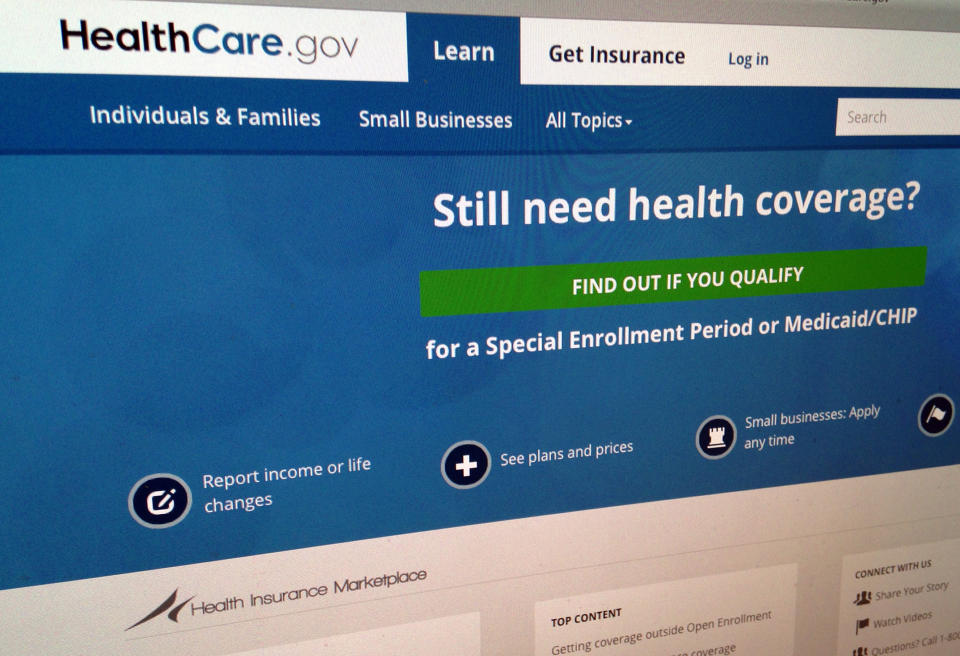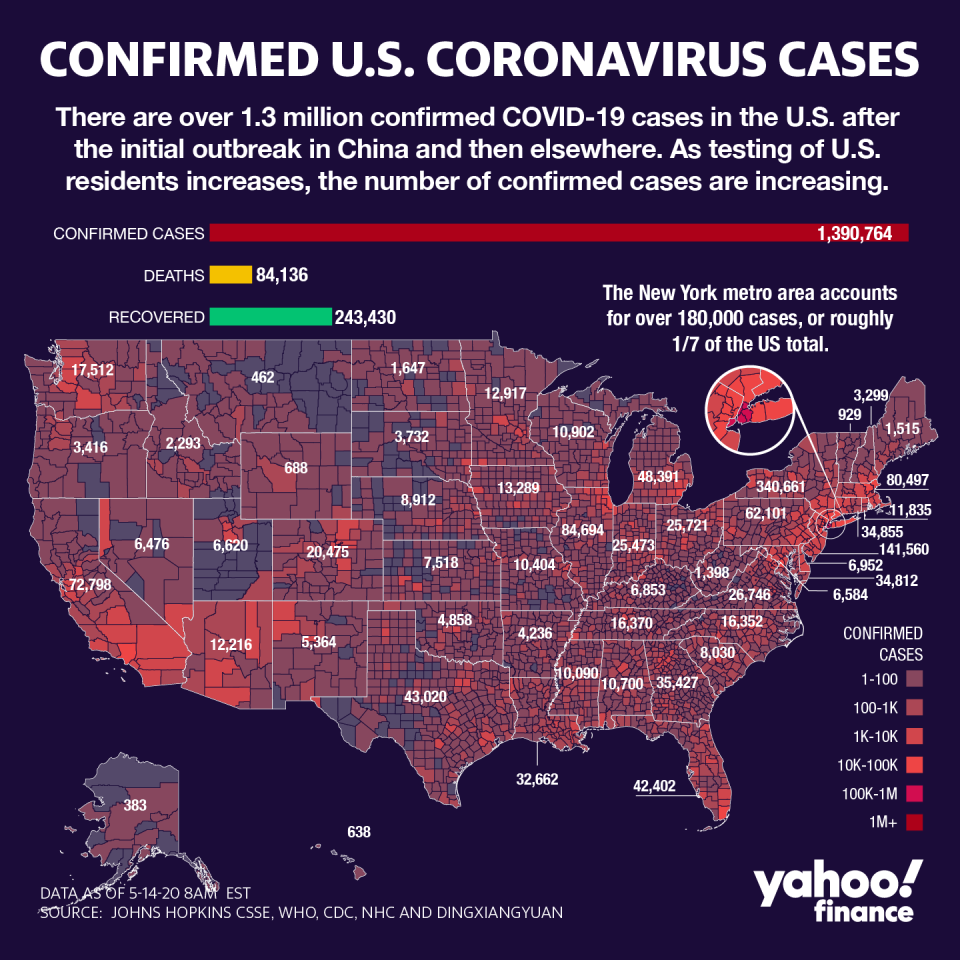Insurance premiums expected to rise 4% to 6%, before factoring in COVID
The COVID-19 crisis put a spotlight on health insurance problems early, as people seeking tests or treatment for the novel coronavirus found themselves stuck with high medical bills. And looking forward, higher insurance premiums are to come.
According to Greg Fann and Dave Dillon, fellows of the Society of Actuaries who work directly with insurers to set health insurance premium rates, costs will be up “in the 4-6% range for the individual and small group market.”
Read more: How to shop for insurance
Though much higher than the rate of consumer price inflation, this is a normal rate bump for the American insurers, and similar to increases in recent years. However, the rate doesn’t factor in a very messy 2020, marked by the global pandemic of COVID-19.

In an economic note from Deutsche Bank looking at how COVID-19 will affect the economy, economists listed rising health insurance premiums and health care costs for both individuals and companies as a factor that will dampen global growth.
The actuaries say it’s too early to know the ultimate impact of the pandemic on insurance costs, but noted a few key points. The tricky thing for insurers is that they can’t simply use a bad year to make the next one more pricey.
“Legally, insurers can’t cite 2020 losses as rationale for 2021 rate hikes,” the experts wrote in a note. “Any rate shifts must be based on expected costs, and can’t include past losses in protective premium rates if these costs aren’t expected to persist into the next plan year.”
Experts say the pandemic could very well persist into the next year and in fact remain only until an effective vaccine has been administered to the population at large. In virtual testimony in front of Congress on May 12, Dr. Anthony Fauci, director of the National Institute of Allergy and Infectious Diseases, evoked an “inevitable” second wave, and the World Health Organization said this week that even with a vaccine (though many months off), the coronavirus may stay with us for years to come.
COVID-19’s weird effect on insurance
Though a public health crisis is expensive, and Congress instructed insurers to cover testing with zero cost-sharing by patients, COVID-19-related financial losses to insurers might be offset by a standstill in other health insurance claims. Many hospitals and clinics have postponed less-critical or elective medical treatment for social distancing and capacity reasons.

“While there have been more hospitalizations and higher spending, the early indication is that many insurers are also seeing reduced spending in other areas, such as elective surgeries,” the actuaries pointed out.
For insurers, this means a cheaper 2020 in some ways, but also that a wave of activity in 2021 could come.
“The potential impact of delayed medical services in 2020 (like elective surgeries)...may create an uptick in utilization in 2021,” the actuaries wrote. “There may also be increased behavioral health usage, which could impact premiums.”
Coverage issues coming in 2021
Uncertainty and unemployment characterize much of our present and future, until a vaccine comes to render society functional again. And with unemployment in America comes the loss of insurance.
Unemployment claims have skyrocketed to over 30 million since the crisis hit and the Bureau of Labor Statistics found 20.5 million payrolls were lost in April alone. Many of those people and their families have now lost their health insurance as well, or will lose it.
According to health care think tank Kaiser Family Foundation, nearly 78 million people live in a family in which someone has lost a job, with 47.5 million of them losing employee-sponsored health insurance. Of these people, Kaiser expects 26.8 million will lose coverage.
Some of them will be covered under Cobra, the Affordable Care Act exchanges, or Medicaid, particularly in states that have expanded. But some people could also fall into coverage gaps as workers’ unemployment insurance ends and they turn to the ACA and Medicare.
This forecasting of the insurance market will be another factor in determining premiums, the actuaries noted.
A lot could depend on Congress as well. Already lawmakers, in their coronavirus response bill, ensured people can get tested and diagnosed for COVID-19 without having to pay cost-sharing fees. However, there’s no special treatment discount for people suffering from COVID-19 in any new law yet.
Overall, it seems that health insurance might get even pricier next year. It’s just that no one knows by how much yet.
--
Ethan Wolff-Mann is a writer at Yahoo Finance focusing on consumer issues, personal finance, retail, airlines, and more. Follow him on Twitter @ewolffmann.
High-yield savings banks finally hit by the Fed's coronavirus rate cut
The US may be undercounting COVID-19 cases by a massive margin: Goldman Sachs
Why Amazon, Facebook, Disney saw their chiefs retake control
Why the unemployment rate could be 5 percentage points higher
Frontier Airlines adopts and quickly rescinds $39 to $89 fee for social distancing
Follow Yahoo Finance on Twitter, Facebook, Instagram, Flipboard, LinkedIn, and YouTube